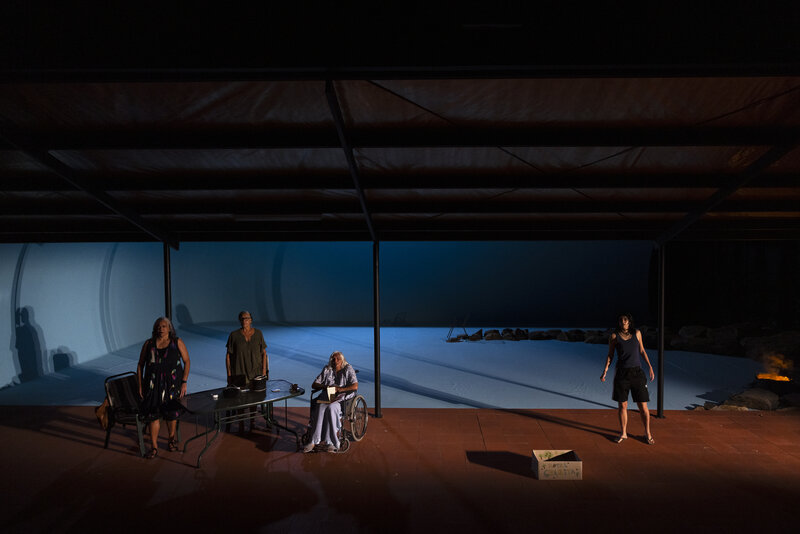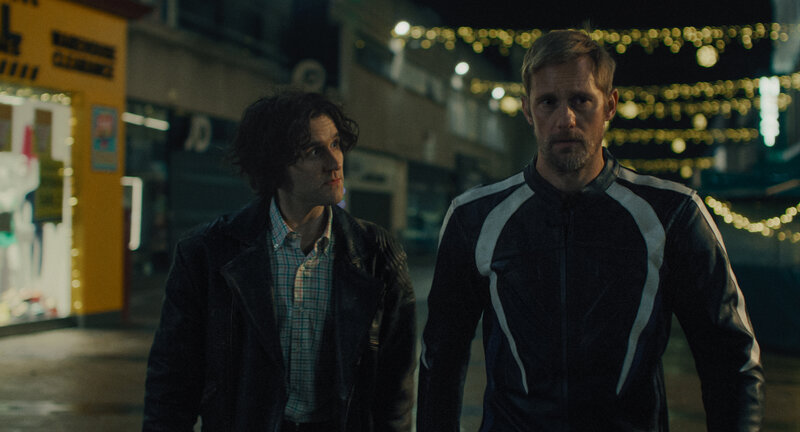For twenty-five years Stephen Page has been the creative director of Sydney’s Bangarra Dance Company, creating some innovative works that often explore complex indigenous themes and culture. He has also choreographed a number of films such as Bran Nue Dae and The Sapphires. He made his film directorial debut with Sand, one of the seventeen chapters in the epic and ambitious screen adaptation of Tim Winton’s novel The Turning. It was that collaboration with producer Robert Connolly that led to Page making his feature film directorial debut with the coming-of-age tale Spear, which is essentially an extended film version of a 40-minute work he created for the stage in 2000.
 Working with actor and screenwriter Justin Mongo (Farscape) Page has expanded the original concept out to nearly 80 minutes, adding some more characters. The film explores themes of death, spirituality, racism, identity, aboriginal diversity amongst men, and their conflicts in adjusting to life in the 21st century. None of the characters are identified by names here, but rather their credit as “suicide Man”, “alcohol man”, etc gives us the definition of their character and their quality. The film is virtually dialogue free, but some small passages of dialogue highlight issues of conflict, physical abuse and substance abuse within indigenous communities.
Working with actor and screenwriter Justin Mongo (Farscape) Page has expanded the original concept out to nearly 80 minutes, adding some more characters. The film explores themes of death, spirituality, racism, identity, aboriginal diversity amongst men, and their conflicts in adjusting to life in the 21st century. None of the characters are identified by names here, but rather their credit as “suicide Man”, “alcohol man”, etc gives us the definition of their character and their quality. The film is virtually dialogue free, but some small passages of dialogue highlight issues of conflict, physical abuse and substance abuse within indigenous communities.
Page’s son Hunter Page-Lochard (from the upcoming TV series Cleverman) takes on the lead role here as Djali, a youth undergoing a spiritual journey as he tries to understand his cultural heritage and traditions in the modern world. Aaron Pederson (Mystery Road) steps into the role of the tragic and homeless “Suicide Man,” a role originated on stage by Wayne Blair, who represents the conflict between the old and the new.
Through the use of some great locations, like Cockatoo Island, Page has moved the film beyond its theatrical origins, although the staging of some dance sequences still seems quite theatrical in nature. David Page (the director’s brother) has created an evocative score that melds together more traditional aboriginal music with contemporary music. Bonnie Elliott’s cinematography gives the material a lush visual surface, and she captures some striking images.
Page has created some energetic choreography and the dance makes the range of complex emotions more accessible. Editor Simon Njoo (The Babadook) creates a fluid rhythm. However, at times it seems to play out like a series of unconnected vignettes. One of the highlights is a comical sequence set in a local hall where the men participate in routine set to the daggy 1961 Charlie Drake novelty song My Boomerang Won’t Come Back.
Spear is certainly a challenging and thought provoking piece of cinema, an impressionistic and experimental production that blurs the line between dance theatre and pure cinema. However, the film is of limited appeal for a mainstream audience.
Director: Stephen Page
Release Date: 10 March 2016 (limited)
Rating: M
Greg King

David Edwards is the former editor of The Blurb and a contributor on film and television




